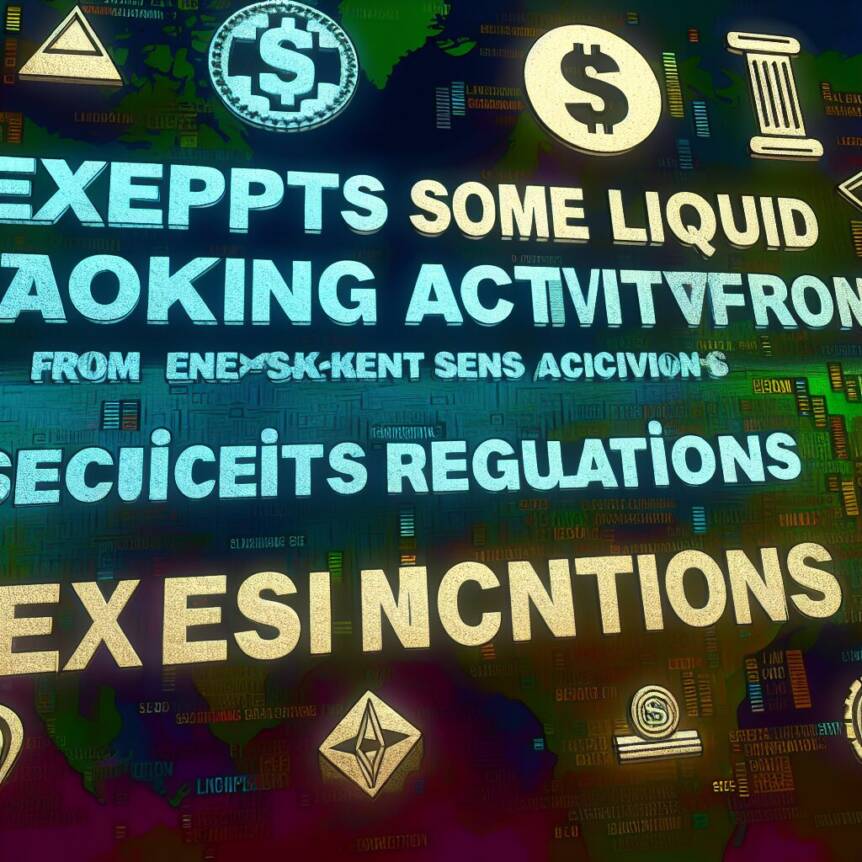In recent developments impacting the cryptocurrency sector, the U.S. Securities and Exchange Commission (SEC) has clarified its stance on liquid staking activities within the DeFi (decentralized finance) ecosystem. The regulatory body has indicated that certain operations involved in liquid staking could be subject to federal securities laws. This announcement has significant implications for service providers and participants in the blockchain and cryptocurrency markets, especially those dealing with protocols like Ethereum.
SEC’s View on Liquid Staking
The SEC’s scrutiny primarily centers around the aspects of liquid staking where providers might be managing pooled assets in a manner akin to traditional financial products subject to securities regulations. Liquid staking is a popular mechanism in blockchain networks, particularly in Ethereum after its shift to a proof-of-stake (PoS) consensus mechanism. It allows network participants to stake their cryptocurrency with a staking provider and receive liquid tokens representing their staked assets. These tokens can then be used within the DeFi ecosystem for various activities like lending, borrowing, and earning yield.
The SEC’s concern is that the promises of returns and the management of pooled staked assets by third parties could render these tokens as securities. Thus, any service that involves issuing tokens that could be seen as a passive investment opportunity might need to comply with the respective securities regulations. This interpretation by the SEC adds a layer of complexity to the operations of DeFi projects and could lead to more stringent compliance requirements.
Implications for the Crypto Market
The implication of this regulatory perspective is vast for the cryptocurrency industry. Staking-as-a-service providers, DeFi platforms, and token issuers will need to evaluate their offerings under U.S. securities laws, which could involve adjustments in their operations or even registrations with the SEC. This could potentially slow down the rapid innovation and pace at which DeFi and staking services have evolved. However, it could also lead to a more structured and stable environment, increasing investor protection in the burgeoning sector.
Moreover, the awareness and understanding of regulatory requirements could benefit the broader cryptocurrency market by fostering trust and stability. The news has also sparked discussions among blockchain experts and stakeholders about the future regulatory landscapes and the need for clear, consistent guidance from bodies like the SEC.
This development underscores the ongoing interplay between innovation in the blockchain space and regulatory frameworks aimed at investor protection and market stability. As the cryptocurrency landscape continues to evolve, further guidance and clarifications from regulatory authorities like the SEC are anticipated.


